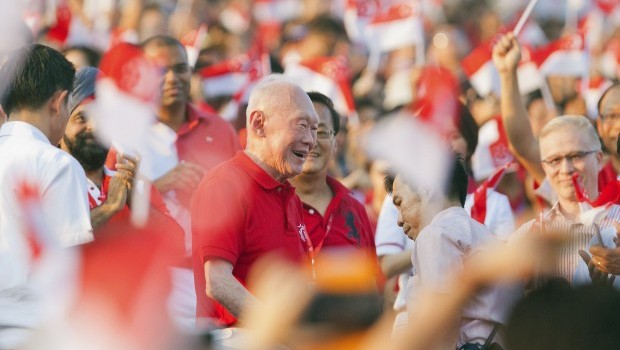Lee Kuan Yew is 89 years old and his health is failing, but his interviews with two Harvard professors over the years have recently been collated and immortalized in a book, with both authors considering the Singaporean leader to be a “grand master” of the modern day. In the book, Kuan says that he has three heroes: Charles de Gaulle, Winston Churchill, and Deng Xiaoping. The reason behind his selection is that these three men were powerful at times when their countries were weak. De Gaulle rescued France from Marshal Philippe Pétain’s treacherous dealings with the Nazi occupation, and Churchill led Britain to victory under Hitler’s bombardment. As for Xiaoping, he changed the Chinese state from one of poverty and famine into a nation that is now among the most advanced countries in the world.
Leadership is an innate talent, whereas management can be acquired through practice. True leaders are something of a rarity, as has been the case throughout the ages.
Later in the book, Kuan reveals that he does not expect China to someday be ranked as the world’s most prominent nation for three main reasons: Firstly, it speaks a difficult language that others will struggle to adapt to. Secondly, China is not a liberal state; corruption is rife and accountability is limited. Thirdly, if China was to become more liberal, it would disintegrate. For the past five thousand years, China has grown accustomed to autocracy and the absolute rule of the emperor, or what we call the pharaoh.
Kuan built Singapore through strong policies and disciplined economic openness. Because his country is a small one—which needs the help of others more than they need it—Kuan installed English as the country’s official language. For him, there was no time to waste in translations, or in deciphering hieroglyphics or mysterious languages. India had made similar moves earlier. Furthermore, following the collapse of the Soviet Union, Russian leaders believed that a potential solution to their plight may be to recognize English as a second language, as is the case with the French, although they would never admit this openly. As for Ireland, it still preserves its ancient Gaelic language; however it is never used to communicate with those beyond its shores.
There are several potential empires that, in my view, have been hindered by their own language: Japan, Germany, and China for example. Let us here consider the historical case of Britain and its establishment of the East India Company. The company’s primary cargo was language, for the British Isles did not produce anything, even fish, but they knew how to market the goods and natural resources of others.
Finally, Kuan also reveals in the book that he suspects American society will collapse someday. An American individual has numerous rights but few responsibilities, and American politicians say and do anything just in order to win elections. For Kuan, a man who—like his heroes—was once stronger than his own country, this is a situation that cannot last forever.
